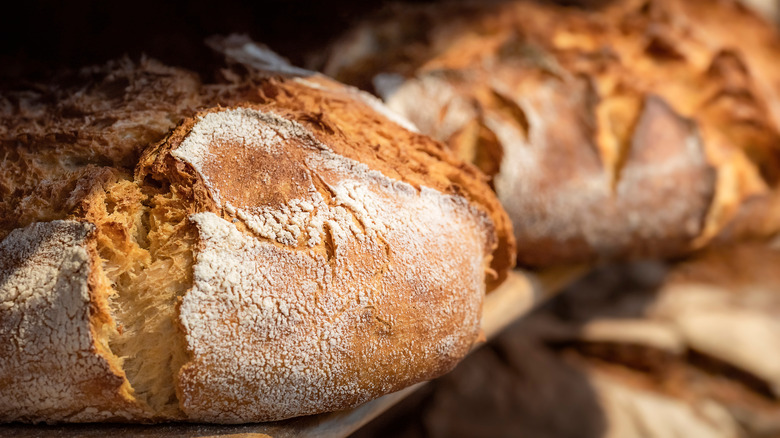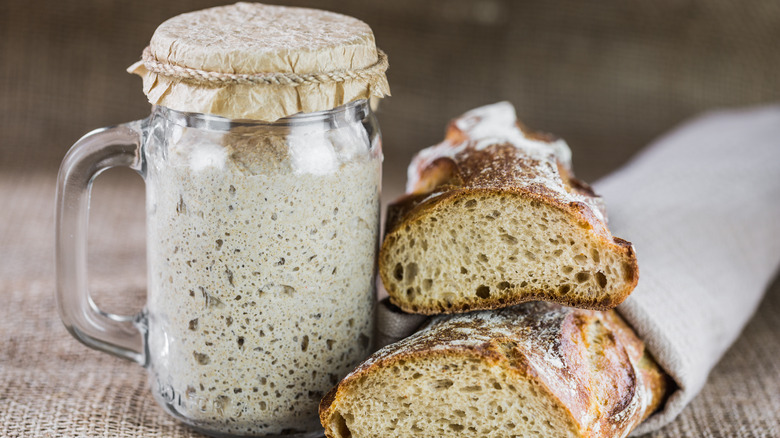The Reason Yeast Makes Bread Smell So Good
Have you ever wondered why many bakeries smell similarly, if not the same? Or if you've ever baked bread at home, you probably have noticed a distinct and delicious aroma that emanates from the oven while the bread is baking. But it's not a coincidence that the scent at your nearby bakery is often similar to other bakeries, or even the grocery store bakery, especially when loaves are in the oven or someone is just pulling out fresh bread. It's possible that you can always detect exactly what is baking. Whether it's a baguette, a round loaf of sourdough, or even rye bread, there is usually no mistaking what is cooking in the oven.
As it turns out, chemistry plays an important role, along with the mixture of flour, water and yeast. That's right: The yeast plays a big role in the scent that is produced when these ingredients are combined and heated as you're baking bread.
The magic is in the yeast
Although some breads can and should be baked without yeast, in general, yeast is an important component to making many varieties of bread, of many different cultures. Yeast is what helps bread rise and expand, but it's also key for other factors when making and baking bread. This small ingredient acts like "a biochemical processing plant that is modifying thousands of chemicals in bread," according to TheKitchn. Yeast breaks down sugars that are in the flour. During this process, carbon dioxide is released, which is what causes and helps the dough to grow and rise.
But before bread hits the oven, there is a fermentation process taking place, where a variety of compounds or molecules are being formed and created, which ultimately influences the outcome of the bread. During this process, there are many molecules that influence and create aromas that will give a specific flavor profile to the bread (via The Kitchn). As Modernist Cuisine relates, "the yeast cells produce chemicals that break down during baking into delicious-smelling aromatics." Certainly the smell of baked goods, especially bread, has pleasant associations for many of us, but the aromatic joy we experience "Thas as much to do with chemistry as it does with psychology."

